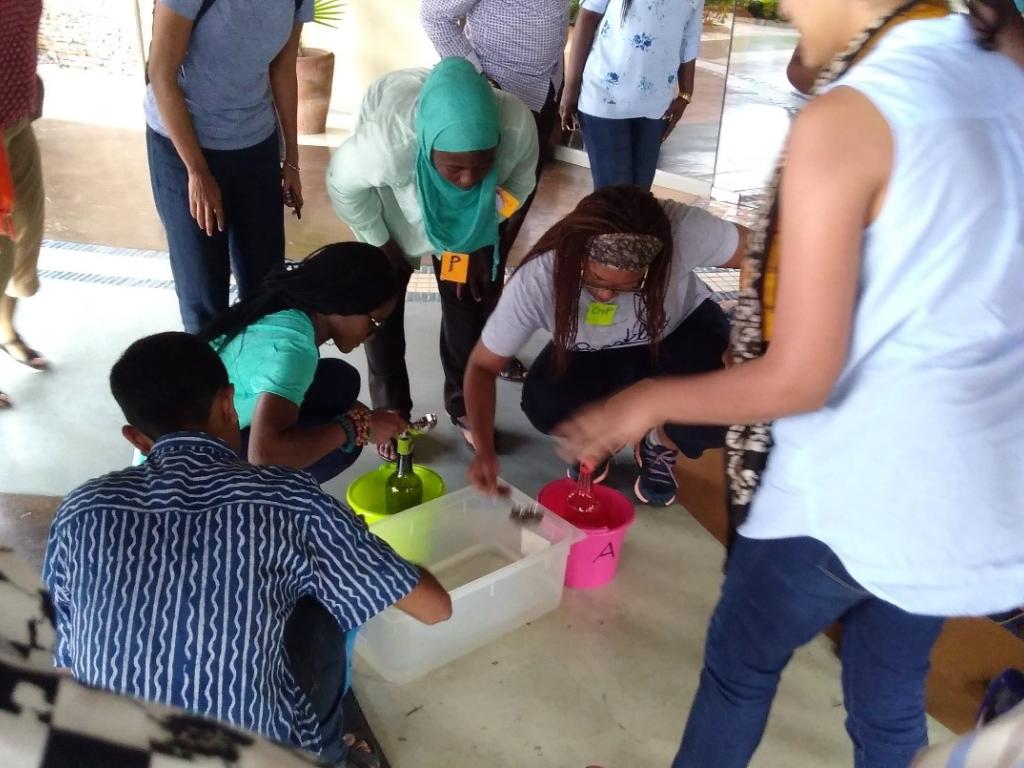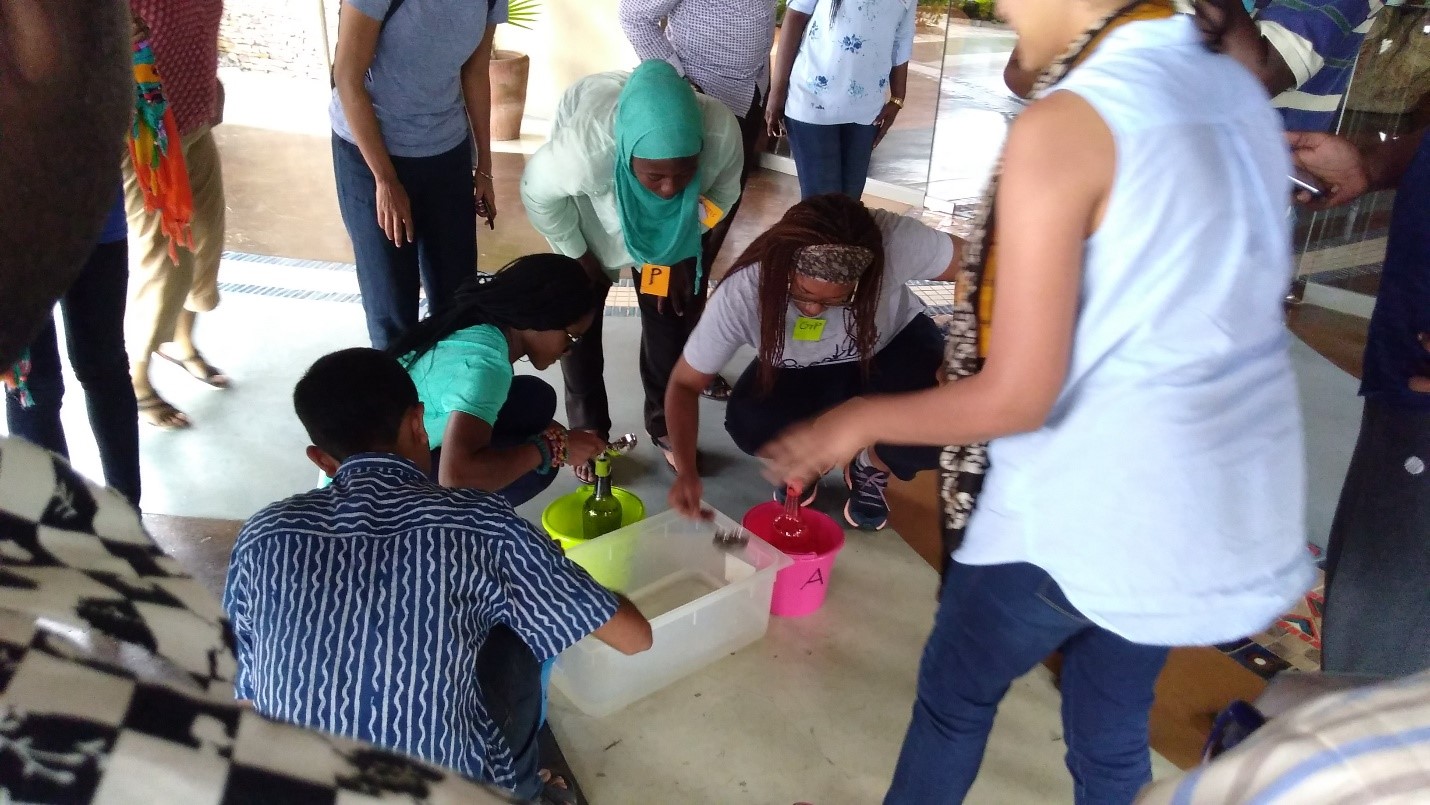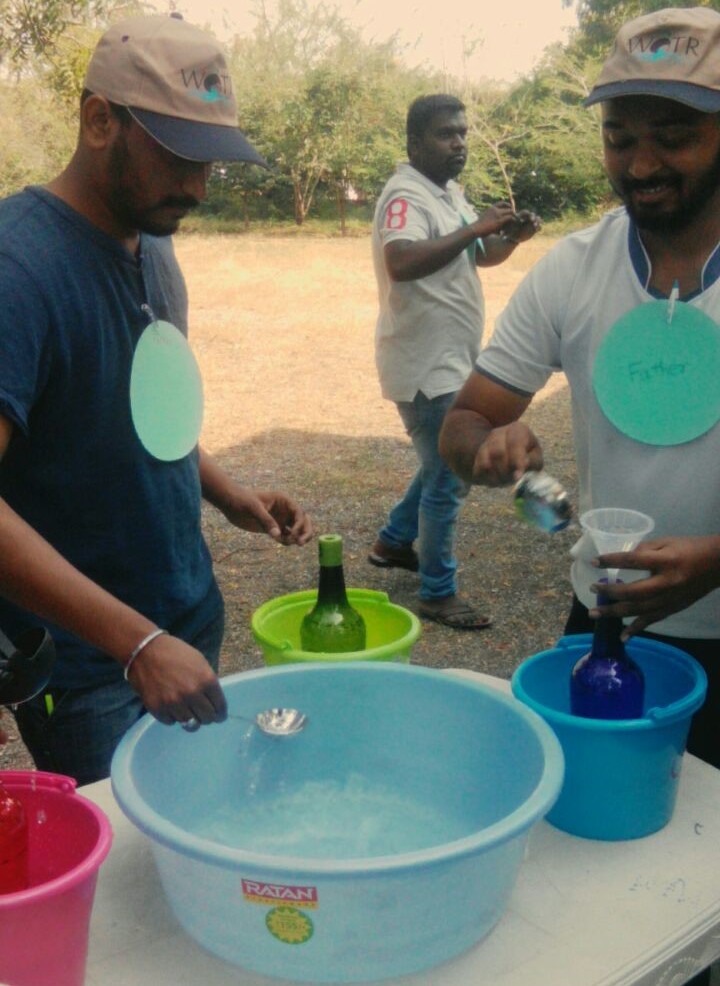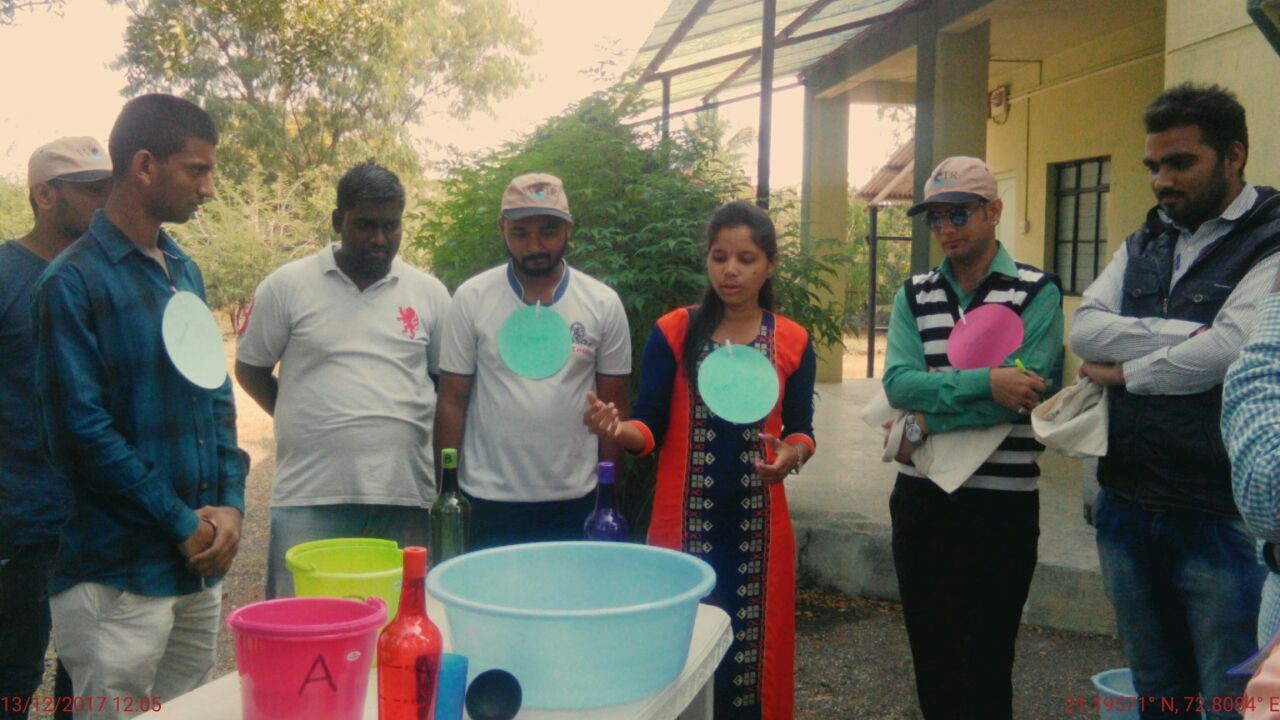In the name of a game: Why games could be one way of disseminating research knowledge

By Bidisha Sinha from the Watershed Organisation Trust
When talking about climate change or resource scarcity to communities, it becomes a daunting task to explain the importance of sustainable usage of any resource or the not-so-very-evident impacts of pollution in the long run. Quite clearly, the farming communities are the first to experience the impacts of any tremor caused in the economy or climate, making them sometimes more sceptical about taking steps for the long run. Their financial boundaries make them take decisions in the ‘now’ and, as a matter of fact, sometimes it is unjustified to talk to them about the ‘long run’ when ‘survival’ is the pressing issue in the short run.

The game was tested with international researchers in Ghana.
When human beings have to take decisions about the use of fast-disappearing resources, a primal instinct of survival and innate competition tends to set in. Such behaviour is perhaps the most primitive of human nature – to grab what is left, by any means, and to survive. Climate change and the increasing momentum of natural resource exploitation is bringing out probably the worst in human beings. In the semi-arid regions of Maharashtra, we often come across news of farmers fighting for the scarcest resource here – water. In a bid to support one of the highest and busiest state economies of India, water is being hugely exploited. Coupled with this exploitation, scanty rainfall and recurrent drought or drought-like situations, the conflicts pertaining to shared resources are becoming more frequent. These conflicts, which sometime lead to hostile fights and arrests, are a precursor to what we may call ‘water wars’ in the near future. Even in normal rainfall years, there are villages that have to buy water from tankers. Despite staring into the face of scarcity, people do not understand why water conservation and sustainable use of water or any kind of natural resource is of utmost necessity.

The game was played with the rural communities in Maharashtra.
This brings us to the topic of social conditioning. That water is a shared resource which crosses spatial scale is very easy to grasp. But that it also crosses the temporal scale is something which is not easy to grasp, and perhaps the key to sensitising people to the issue. While the first tends to trigger a sense of competition, the second brings the perspective of an impending grim future, either in the same lifetime or in the lifetime of future generations. Perhaps the one thing that hurts or resonates with a person most is the prospect of one’s progeny not getting as good a life as one’s own.
Simplified representation of life conditions
As researchers, we often face the task of disseminating the scenarios that we so theoretically assess to the stakeholders who are mostly from the rural communities facing extreme practical challenges of survival. The same dilemma stares at us: how do we explain to the communities the importance of the long run while keeping in mind the picture in the closer horizon? Often times, it has been seen that rather than being more assertive, it helps when the problem or the picture is presented to them in a more simplistic and allegorical manner – and it is left to them to figure it out themselves.
The requirement, hence, is a simplified representation of life conditions. Games have been used in a lot of fields to explain or lighten up heavy dissemination. Games used for knowledge dissemination are simplistic representation of our general life processes and the players enact the roles of either themselves or others in order to achieve some end. While the spirit of a ‘game’ makes the enactment lighter and the problems less grim, the players are left with their new insights and reflections. It becomes easier for the players to retrospect the proceedings of the game and make the connections to how their present actions are impacting the greater and more complex picture.

Post-game reflections form a crucial section of the game. It is often observed that people can easily understand what the game is alluding to and how it has changed their perspective of the problem.
WOTR has been working on ways to translate the research findings into impactful ground practices. The first step in this process was to simply explain the problem of unsustainable use of water or problems of pollution to the people. We have, and are, in the process of developing simple games that can impart the same to a larger audience, each from a different field. The games have been played out with both villagers and with a broader international research audience. Irrespective of the background of the people who played the game, unanimity has been reached on how such games help in reflecting the perils of unsustainable use of water or how pollution may permanently damage water bodies.
‘The Bucket Game’
‘The Bucket Game’ assigns the role of three generations of water users in three different families. Each individual generation competes against the players of the corresponding generations for maximising their benefits (which in the case of the game is filling up bottles of water from a common resource). The first- and second-generation players respond quite aggressively to the benefit maximising incentives, only to find that their respective last generations scrape water to fill their bottles. The visuals of people scraping water out of a bucket often trigger a reflection of what the future generations might finally have to do in reality.
Such games lead to at least an initial acceptance of the problem. Whether the visuals and the realisations remain with the players and successfully alter their behaviour only time will tell.